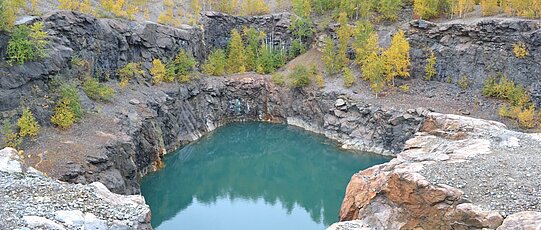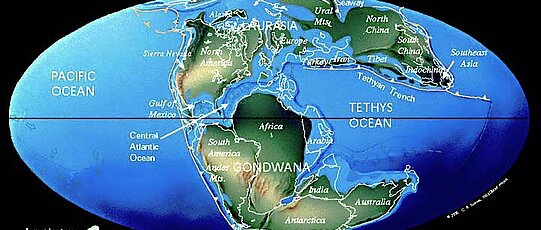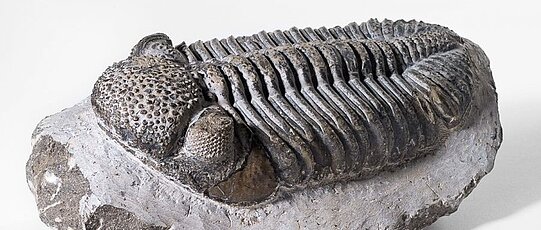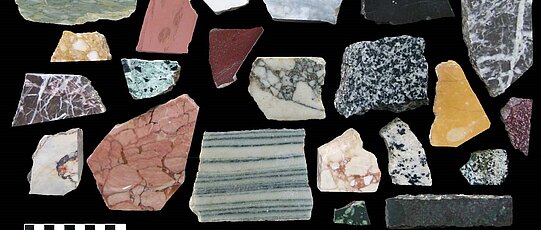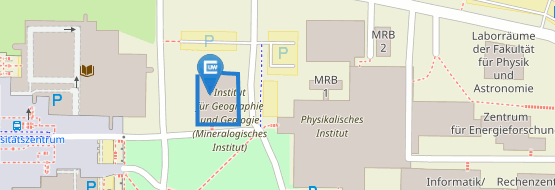Research
Research at the Department of Geodyamics & Geomaterials Research
The research at the department, which is partly financed by the German Research Foundation (DFG) and partly by industrial funding, can essentially be divided into four main areas:
International cooperations
Despite its comparatively small size, the department has a high international profile, which is reflected in numerous collaborations with institutions from all continents. In this context, close cooperation with the non-German universities of Uppsala (Sweden), Montevideo (Uruguay) and Sao Paulo (Brazil) should be emphasised. Noteworthy is the long-standing cooperation with the Department of Geological Sciences at the University of Cape Town (UCT, South Africa).
The department is involved in a number of international organisations, such as the International Commission on Stratigraphy of the International Union of Geological Sciences (Frimmel, Geyer) and the Society for Geology Applied to Mineral Deposits (SGA). Prof. Frimmel belongs to the "Executive Committee" of SGA - one of the two leading organisations worldwide in the field of deposit research.
- Canadian Continental Exploration Corp., Toronto, Kanada
- Centre of Advanced Study in Geology, Banaras Hindu University, Varanasi, Indien
- Chinese Academy of Sciences, Beijing, China
- Czech Geological Survey, Praha, Tschechien
- Department of Civil Engineering, SDM College of Engineering and Technology, Dharwad, Indien
- Department of Geological Sciences, University of Cape Town, Südafrika
- Department of Geology and Paleontology, University of Montevideo, Uruguay
- Department of Geological Sciences, University of Sao Paulo, Brasilien
- Department of Geology, Faculty of Science, Ferdowsi University of Mashhad, Iran
- Department of Geology, Univ. Stockholm, Schweden
- Department of Earth Sciences (Palaeobiology), Uppsala University, Schweden
- Deutsches GeoForschungsZentrum, Potsdam
- Geological Survey of Namibia, Windhoek, Namibia
- Geological Survey of Norway, Norwegen
- Geologiska Institutionen, Lunds Universitet, Schweden
- GeoZentrum Nordbayern, Erlangen
- K + S Aktiengesellschaft, Kassel
- Karlsruher Institute of Technology, Karlsruhe
- Knauf Gips KG, Iphofen
- Institut für Geologie und Paläontologie, Universität Basel, Schweiz
- Institut für Geowissenschaften, Univ. Frankfurt
- Inventus Mining Corp., Sudbury, Kanada
- New York State Museum, USA
- Novo Resources Corporation, Longmont, Colorado, USA
- Senckenberg Naturhistorische Sammlungen Dresden, Museum für Mineralogie und Geologie, Dresden
- Technical University Freiberg
- Vardar Minerals, London, UK
- Xpotential Consulting, Cape Town, Südafrika


